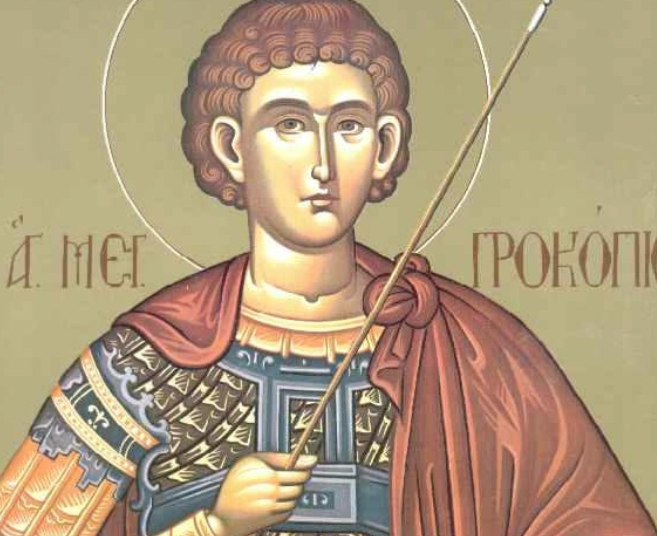When Neanias returned to Jerusalem, his mother, who was still a pagan, went to the emperor to complain that her son had become a Christian. Neanias was called before the emperor and ordered to sacrifice to the idols. But he boldly refused, proclaiming his faith in Christ. As a result, he was imprisoned and tortured. During his imprisonment, the Lord appeared to him once again, giving him the name Procopius and strengthening him in his faith.
Despite further attempts to make him renounce his faith, Procopius remained steadfast. Many who witnessed his courage were inspired to embrace Christianity and suffered martyrdom alongside him. Eventually, Procopius was sentenced to death by beheading. His body was buried by fellow Christians, who mourned his loss but rejoiced in his victory over death.
Saint Procopius is remembered as a great martyr who, through his unwavering faith and courage, brought many others to Christ. His story serves as a powerful reminder of the transformative power of the gospel and the strength that comes from standing firm in the face of persecution.
He entered Jerusalem as a victor, and revealed his Christian faith to his mother.
Brought before the court, Neanias removed his commander’s belt and sword, and threw them before the judge, thereby showing that he was a soldier only of Christ the King. After being tortured extensively, he was cast into prison. There the Lord Christ appeared to him again, baptized him, and gave him the name Procopius. One day twelve women appeared before his prison window and said to him: “We too are servants of Christ.” Accused for this, they were thrown into the same prison. St. Procopius taught them the Faith of Christ, and prepared them to receive their “martyr’s crowns.” (This is why St. Procopius, along with the God-crowned Emperor Constantine and Empress Helena, is mentioned in the order of crowning during the wedding ceremony.)
Subsequently, the twelve women were brutally tortured. Witnessing their suffering and bravery, the mother of Procopius also came to believe in Christ, and all thirteen were slain. When St. Procopius was led to the scaffold, he raised his hands toward the east and prayed to God for all the poor, the needy, the orphans and the widows, and especially for the Holy Church, that it would grow and spread, and that Orthodoxy would shine to the end of time. And from heaven it was made known to him that his prayers were heard, after which he joyfully laid his head under the sword and went to his Lord in eternal joy. St. Procopius honorably suffered at Caesarea in Palestine, and was crowned with a wreath of immortal glory, on July 8, 303 A.D.

